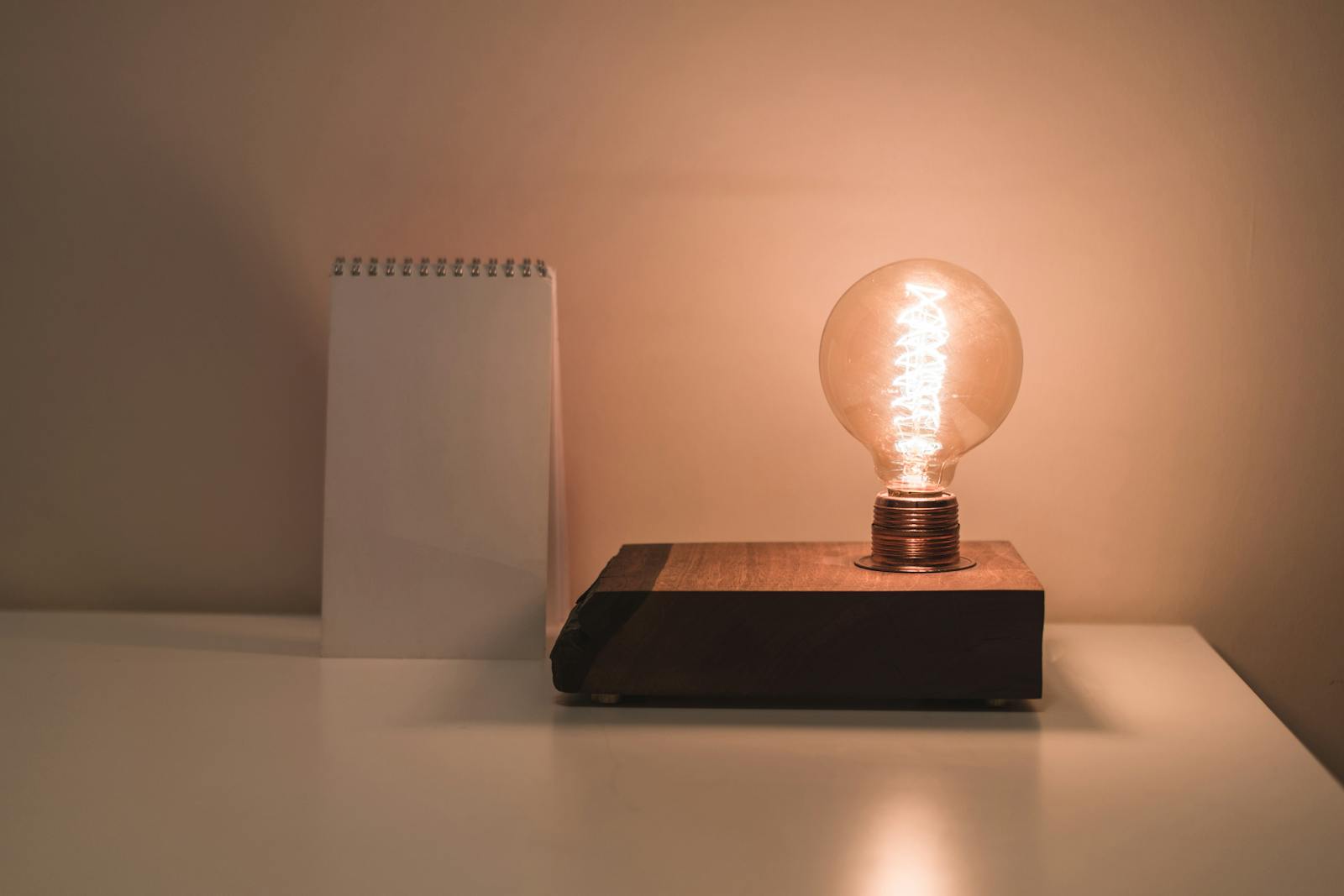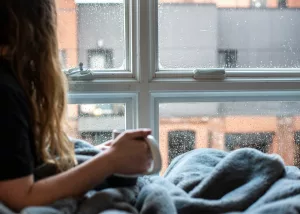Minimalism is more than just a trend; it’s a way of living that simplifies life by focusing on what truly matters and letting go of unnecessary possessions, distractions, and obligations. Embracing a minimalist lifestyle can bring a sense of calm, clarity, and purpose by reducing the excess that often overwhelms our lives. This intentional approach to living provides benefits that go beyond material simplicity, enhancing mental health, financial freedom, and overall quality of life.
This article explores 15 powerful benefits of adopting a minimalist lifestyle. From improved focus and personal growth to sustainable living and deeper relationships, each benefit highlights the transformative impact of living with intention and simplicity.
1. Enhanced Mental Clarity
When you strip away the clutter, you gain the gift of mental clarity. Living surrounded by excess possessions and unfinished tasks can create mental chaos that weighs heavily on the mind. A minimalist lifestyle promotes a cleaner, simpler environment that allows your mind to breathe and your thoughts to settle. Without countless items vying for your attention, mental clarity improves, giving you the freedom to focus on your goals, dreams, and priorities without the distractions of unnecessary possessions.
Minimalism creates a mental space that allows you to think clearly, make better decisions, and focus on what genuinely matters. When you’re not constantly bombarded with visual and mental clutter, your mind can relax and become more productive. This simplicity fosters a sense of calm and control, helping you approach tasks, challenges, and responsibilities with a refreshed perspective. Enhanced clarity brings about greater efficiency and creativity, as a clutter-free space encourages a clutter-free mind.
2. Financial Freedom and Better Money Management
Minimalism often leads to significant financial benefits, as it encourages mindful consumption and intentional spending. When you no longer feel the urge to purchase items on impulse or to keep up with trends, you’ll find yourself spending less and saving more. A minimalist approach to finances prioritizes investing in quality over quantity, reducing the frequency of purchases and cutting down on unnecessary expenses. With fewer purchases, you accumulate savings that provide financial freedom and stability over time.
Living a minimalist lifestyle also promotes better money management, as you’re more likely to track your spending and evaluate purchases with intention. Instead of spending on temporary luxuries, minimalists often channel their resources toward meaningful experiences or long-term investments. This financial discipline fosters security, reduces debt, and allows you to live with peace of mind, knowing that your spending aligns with your values and future goals.
3. Reduced Stress and Anxiety
The weight of clutter isn’t just physical; it’s emotional and mental as well. Studies have shown that clutter can significantly increase levels of stress and anxiety, as it creates a sense of chaos and a feeling of being overwhelmed. A minimalist lifestyle promotes an environment free from excess, bringing a sense of order and calm to your daily life. With fewer items to clean, maintain, and organize, you have more time and energy for self-care and relaxation.
As you pare down belongings and simplify your routines, you’ll likely find a decrease in anxiety and an increase in inner peace. Minimalism frees you from the constant pursuit of more, helping you to appreciate the value of what you have. This shift in focus from possessions to experiences and well-being allows for a more relaxed and fulfilling life, reducing stress and allowing for a deeper sense of contentment and calm.
4. Improved Focus and Productivity
Minimalism removes distractions, making it easier to focus on what truly matters. When your surroundings are free from clutter, your mind can more easily focus on tasks and projects without the need to filter through the unnecessary. This clarity and focus enhance productivity, as you’re able to dedicate your time and energy to achieving goals and completing tasks. A minimalist workspace, for example, removes distractions that might pull you away from the task at hand, allowing you to engage in deeper, more meaningful work.
With less to distract you, productivity increases, as does your sense of accomplishment. Minimalism also emphasizes prioritizing essential tasks over busywork, encouraging you to focus on activities that add genuine value to your life. This intentional approach to productivity promotes efficiency, helps prevent burnout, and allows you to end each day feeling fulfilled rather than drained by the demands of excess.
5. Increased Self-Awareness and Personal Growth
One of the core principles of minimalism is intentional living, which encourages individuals to reflect on their values, needs, and desires. By simplifying your life and focusing on what truly matters, you naturally become more in tune with your inner self. Minimalism fosters self-awareness by helping you to distinguish between what society deems important and what genuinely aligns with your personal goals. This process of introspection leads to personal growth, as you gain clarity on your true identity and values.
Self-awareness cultivated through minimalism empowers you to make decisions that resonate with your authentic self. By letting go of societal expectations and the pressure to accumulate, you create space for meaningful experiences, relationships, and passions that contribute to your personal development. This journey of self-discovery fosters a deep sense of fulfillment, as you grow into a person who values substance over superficiality.
6. Greater Freedom and Flexibility
Minimalism reduces the weight of material possessions, creating a sense of freedom and lightness. Owning fewer items means less to manage, clean, and organize, allowing for greater flexibility in daily life. Many minimalists experience a newfound ability to pursue travel, career changes, or relocation without the constraints that come with owning and maintaining a multitude of belongings. This lifestyle shift offers the freedom to prioritize experiences and adapt to new opportunities without feeling tied down by possessions.
In addition to physical freedom, minimalism offers mental freedom from the constant pursuit of acquiring and maintaining possessions. This liberation from material constraints allows individuals to focus on their passions, relationships, and personal goals, fostering a more meaningful and fulfilling life. The ability to adapt and move without hindrance adds a refreshing perspective on life, helping minimalists embrace change and welcome new experiences with open arms.
7. Better Time Management
With fewer possessions to care for and less clutter to maintain, minimalism provides the gift of time. Living a minimalist lifestyle frees you from the hours spent organizing, cleaning, and managing belongings, allowing you to reclaim your time and invest it in things that matter. Simplified routines and a focus on essentials help streamline daily life, reducing the hours spent on unnecessary tasks and making time management more effective.
Minimalism encourages individuals to be intentional about how they spend their time, helping them prioritize meaningful activities over mundane chores. By cutting down on possessions, you’ll find it easier to manage your schedule and dedicate more time to personal goals, family, hobbies, or self-care. This newfound control over your time fosters a balanced and fulfilling life, enhancing your overall well-being and satisfaction.
8. Environmental Sustainability
Minimalism promotes eco-friendly living by reducing consumption and encouraging sustainable choices. When individuals adopt a minimalist mindset, they often become more conscious of the impact of their purchases, opting for quality over quantity and prioritizing items that last. This intentional approach to consumption reduces waste, conserves resources, and minimizes the environmental footprint associated with manufacturing, packaging, and disposal of goods.
Additionally, minimalists are more likely to embrace practices such as recycling, reusing, and choosing sustainable alternatives. By consuming mindfully, minimalists contribute to a healthier planet, supporting efforts to combat climate change and preserve ecosystems. Minimalism’s focus on sustainability encourages a more thoughtful, less wasteful lifestyle that benefits both individuals and the environment.
9. Stronger Relationships
Minimalism encourages individuals to focus on people rather than things, fostering deeper connections and more meaningful relationships. By placing less emphasis on material possessions, minimalists are free to invest more time, energy, and love into their relationships. Prioritizing experiences and quality time with loved ones strengthens bonds, creating shared memories that far outweigh the value of material items.
When relationships are placed above possessions, connections become richer and more fulfilling. Minimalism shifts the focus from accumulating goods to cultivating a supportive and loving community, enhancing the quality of friendships and family ties. This approach leads to more authentic relationships built on mutual respect, appreciation, and shared experiences rather than superficiality.
10. Improved Physical Health
The minimalist lifestyle often leads to improved physical health as individuals are more mindful of their habits and routines. A simplified, uncluttered space is easier to keep clean and organized, promoting a healthier home environment. Minimalists also tend to adopt healthier eating habits, focusing on fresh, nutritious foods over processed items, and prioritize physical activity as part of their simplified daily routine.
Additionally, the reduced stress and anxiety associated with minimalism contribute to better overall health, lowering the risk of stress-related illnesses. This holistic approach to health—encompassing mind, body, and environment—creates a well-rounded lifestyle that supports longevity and vitality.
11. Reduced Decision Fatigue
Minimalism minimizes the number of choices in daily life, reducing decision fatigue and allowing for more focused, purposeful decision-making. By limiting possessions and simplifying routines, minimalists streamline their lives, making it easier to make quick and intentional choices. Without the constant barrage of decisions over what to wear, buy, or keep, minimalists have more mental energy to dedicate to meaningful choices.
This simplicity alleviates the mental strain associated with constant decision-making, creating space for clarity and focus. Less decision fatigue means more energy to dedicate to what truly matters, enhancing productivity, creativity, and quality of life.
12. Greater Sense of Gratitude
Living minimally fosters a deep appreciation for what you have rather than constantly seeking more. Minimalists cultivate a sense of gratitude by focusing on quality over quantity, appreciating each item, experience, and relationship more fully. By valuing what’s truly meaningful, they develop a mindset that finds joy in the present and reduces the desire for constant acquisition.
This sense of gratitude permeates every aspect of life, encouraging minimalists to focus on experiences, relationships, and personal growth. As gratitude becomes a daily practice, life feels more satisfying and fulfilling, creating a positive, contented mindset that elevates well-being.
13. Enhanced Creativity
Minimalism’s simplicity provides the mental space needed for creativity to flourish. With fewer distractions and a clear environment, minimalists often find themselves more inspired and free to explore creative pursuits. The uncluttered physical space promotes an uncluttered mind, allowing ideas to flow more freely and creating the perfect environment for artistic or intellectual exploration.
Creativity often emerges when there is room to think deeply and innovate. By minimizing distractions and embracing simplicity, minimalists create an ideal environment for new ideas, self-expression, and creative problem-solving.
14. Increased Self-Discipline
Minimalism requires a degree of self-discipline that strengthens over time. By resisting the urge to accumulate and focusing on what’s essential, minimalists develop discipline that extends to other areas of life. This practice helps them set and achieve goals, maintain healthy habits, and make intentional choices that support long-term growth and satisfaction.
This self-discipline fosters a sense of empowerment and control, as minimalists experience the rewards of intentional living. It reinforces positive behaviors that build resilience, confidence, and a life of purpose aligned with one’s deepest values.
15. Heightened Sense of Purpose
Minimalism cultivates a sense of purpose by eliminating distractions and focusing on what genuinely matters. By stripping away the unnecessary, individuals can align their daily choices with their core values and goals, creating a life that feels intentional and fulfilling. The focus on purpose-driven living creates a sense of satisfaction and inner peace, as minimalists feel they are building a life that reflects their authentic selves.
This sense of purpose is both grounding and inspiring, encouraging minimalists to pursue passions, foster meaningful relationships, and contribute to the world in positive ways. Living with purpose enhances well-being, promoting a fulfilling and joyful life that prioritizes depth and meaning over material accumulation.
Embracing a minimalist lifestyle offers a multitude of benefits, from enhanced mental clarity and financial freedom to stronger relationships and personal growth. Minimalism empowers individuals to live intentionally, making choices that align with their values and fostering a life filled with purpose and gratitude. By reducing clutter, simplifying routines, and focusing on what truly matters, minimalists create space for meaningful experiences, self-discovery, and a deeper connection to the world around them.
In a society often driven by materialism, minimalism provides an alternative path, promoting sustainability, mindfulness, and personal fulfillment. Each of these benefits showcases how minimalism goes beyond simply owning less—it’s about living more. For those seeking a life of simplicity and intentionality, the minimalist lifestyle offers a powerful way to achieve happiness, well-being, and freedom.




